Here is a survey about YOUR future when you get older: How do you see the second half of life?
Please go to https://de.surveymonkey.com/r/8NZQ3XV
OUR FIRST COMMUNITY LIVE CONVERSATION – about AGEING
Hear our presentation at the INTEGRAL EUROPEAN CONFERENCE in Hungary,
May 6th, 2016
We were pleased and grateful to witness a lively interest in the topic.
You are invited to join the discussion by filling in the survey above and by joining our Facebook Group http://bit.ly/integralageing
Hear our pre-conference talk about what we will be talking about on May 6th, 2016 in Siofok/Hungary.
IEC-Ageing

Conscious Ageing at the Integral European Conference
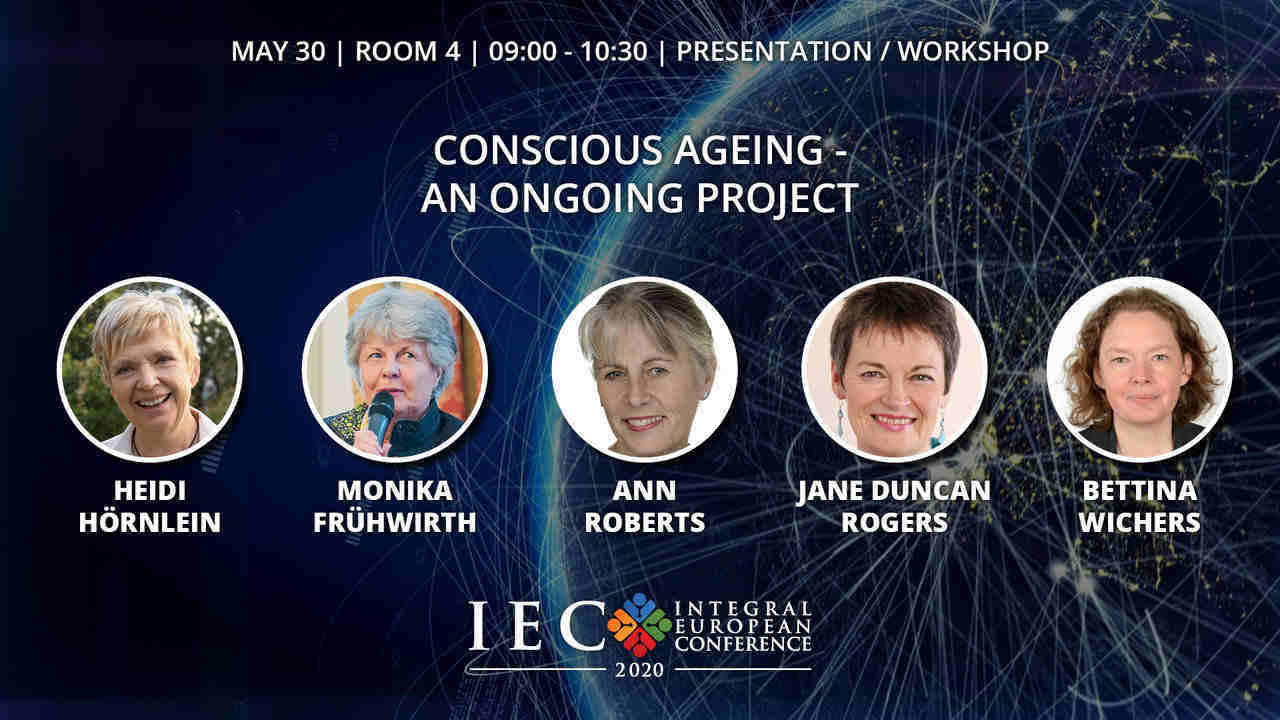
HEIDI´S INTRO
Four years ago, after Mark’s talk at the Integral European conference 2016, we have created together the series “Conscious Ageing” at the Wisdom Factory.We have hosted around 60 guests who shared their perspective on Ageing and how to do it consciously.
Ageing and dying is still such a taboo topic, the more I was pleased to see quite a lot of people early in the morning to attend my Conscious Ageing Contribution at the conference which had to be online this year because of Corona.
When I talked about the history of the series and then showed the picture of Mark’s grave stone with the spiral engraved in white marble, the tears came up again. It is 2 years ago that he had to leave his body, but the grief is still there. I believed it had passed now, but the connection had continued and obviously also the grief that it is no more in a tangible way.
Jane Rogers acknowledged the grief. She has developed the “before I go” solutions after her husband died and she realised how important it is to leave directions for those who have to deal with our funeral and the stuff we leave behind. Despite the serious topic she managed to talk about it lightly and with humour and was well received by the audience.
Bettina Wichers gave a short overview on how Dementia can be seen through the integral lens. Today it is mainly seen as an illness which needs fixing – or remains unfixable. But there are many more dimensions to it, especially how to handle people in the different stages of theor spiraling down to beige, in ways that it is best for them and for the people around.
Ann Roberts talks about “Adulthood II”, the new emerging stage in peoples’ lives between retirement and old age, when they are full of energy and willing and able to create something new in their lives, often less oriented to achieve something, but more understood as a service to a cause or other people.
Monia cancelled her participation. She was invited to an 80-year birthday party lunch of a friend who she fears to not have around any more for long. Being almost 80 herself she felt she couldn’t do bothe, one after the other, and she decided to care for herself by freducing the stress which would have come up doing everything in the same morning. – A practice of conscious ageing!
Several people in the audience spoke up, talked about their own attitude towards their ageing or the processes they went through when being with a parent until death. A very intimate atmosphere arose in these 90 minutes we were together online on video.
This event was an encouragement for me to continue the work which was so dear to Mark’s heart: Conscious Ageing, Conscious Dying. He himself certainly was an example of both.
Heidi Hörnlein
Born in Germany, MA in Berlin, in Italy for 30 years, Voice teacher and
therapist. Licensed Counselor and Coach and Host of audio and video
podcasts since 2013.
University studies in Mathematics, Physics, MA in Linguistics. Parallel
studies in singing. Employment in a professional choir RIAS Berlin. 5
years of study of voice and music in Rome. Self-study and meeting Integral
theory led to developing “Integral voice training”. License in Gestalt
Counseling and different Coaching approaches. Live broadcasts and
video recordings with Mark Davenport in The Wisdom Factory on
Conscious Ageing and other topics.
Ann Roberts
Ann’s exploration of Conscious Ageing began in 2015 when after a 35 years career in organisational, team, and personal development, she retired from Police Scotland as a Leadership Development Consultant. She is now exploring Conscious Agers via an initiative called Active Wisdom: An Inquiry into our Elderhood. Ann is particularly interested in adult development opportunities within the life cycle stage of Elderhood that arises from the possibility of more freedom, more time, and more potential for exploration. In 1996 Ann first encountered an indigenous Mayan body of Teachings that, over the years, she has woven its tools and protocols with her love of Integral Theory. Ann lives in a village just south of Edinburgh in Scotland.
Jane Duncan Rogers
Jane Duncan Rogers is an award-winning Life and Death coach who
helps people prepare well for the best ending of life possible.
Having been in the field of psychotherapy and personal growth for more
than 25 years, she is also the author of Gifted By Grief: A True Story of
Cancer, Loss and Rebirth, and Before I Go: Practical Questions to Ask
and Answer Before You Die. She founded Before I Go Solutions in 2016.
Read her full biography on her other website: www.giftedbygrief.com
Monia Frühwirth
Born in Vienna, November 1941. Trained as a translator at the University of Vienna. Married since 1965, two daughters,
three grandchildren. Lived in New York City for 9 years, studied, and practiced Kundalini Yoga and comparative religions
after experiencing cosmic consciousness in 1973. Further training in Buddhism for the West, Gestalt therapy according to
Rebillot, shadow work. Since 2001 actively involved in the German-speaking integral scene, chief editor of the integrale
Perspektiven, the founder of the Integrale Frauenfeld, organizing integral activities in Vienna.
Bettina Wichers
Bettina has a scientific degree in gerontology (M.Sc.) and adult education (Dipl.) and works as an integral coach for consciousness development and as a freelance consultant in the field of health, ageing and dementia.
She refers in her work to the Integral Methodological Pluralism (Ken Wilber) as metatheoretical framework and to Spiral Dynamics, the Stages model of Terri O’Fallon, the developmental research of Susanne Cook-Greuter, Roman Angerer and John Kesler. For many years, based on an intensive phenomenological practice, she has been doing research on the causes of what is described as regression in dementia and has been looking for the involutionary impulse for it. With Terri O’Fallon, she is currently working on a study of how dementia is constructed and experienced at the different stages of Terri’s Stages model. Together with Roman Angerer, she is developing different experimental formats in the German-speaking integral community to open the transition from the autonomous-integral stage to the stage of construct awareness.
In May 2018 she presented her work at the Integral European Conference in Hungary. She is leading an Integral Salon in Göttingen, Germany, and is a member of the HeilOrt community, an integral health project in Bad Belzig, Germany.
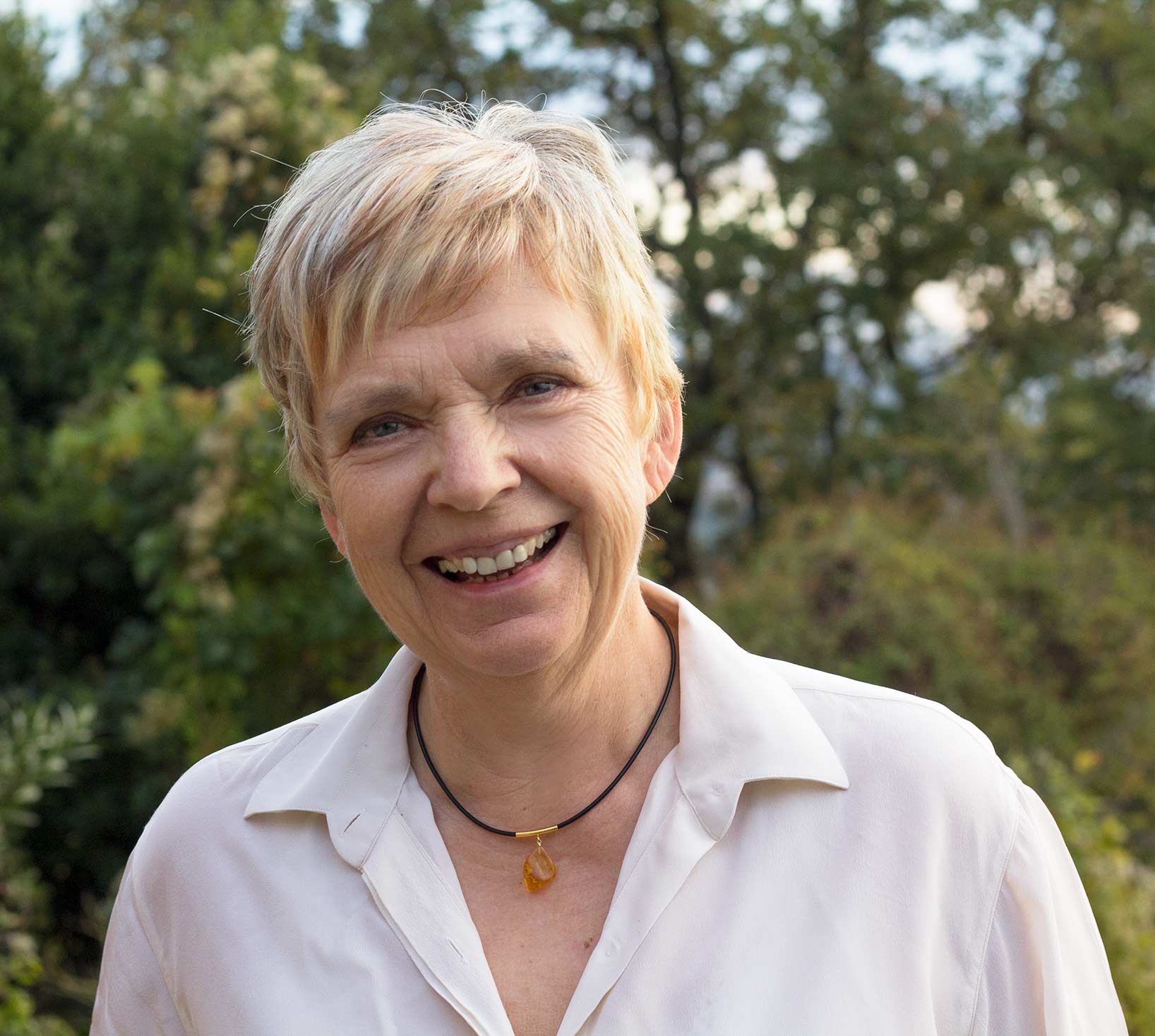
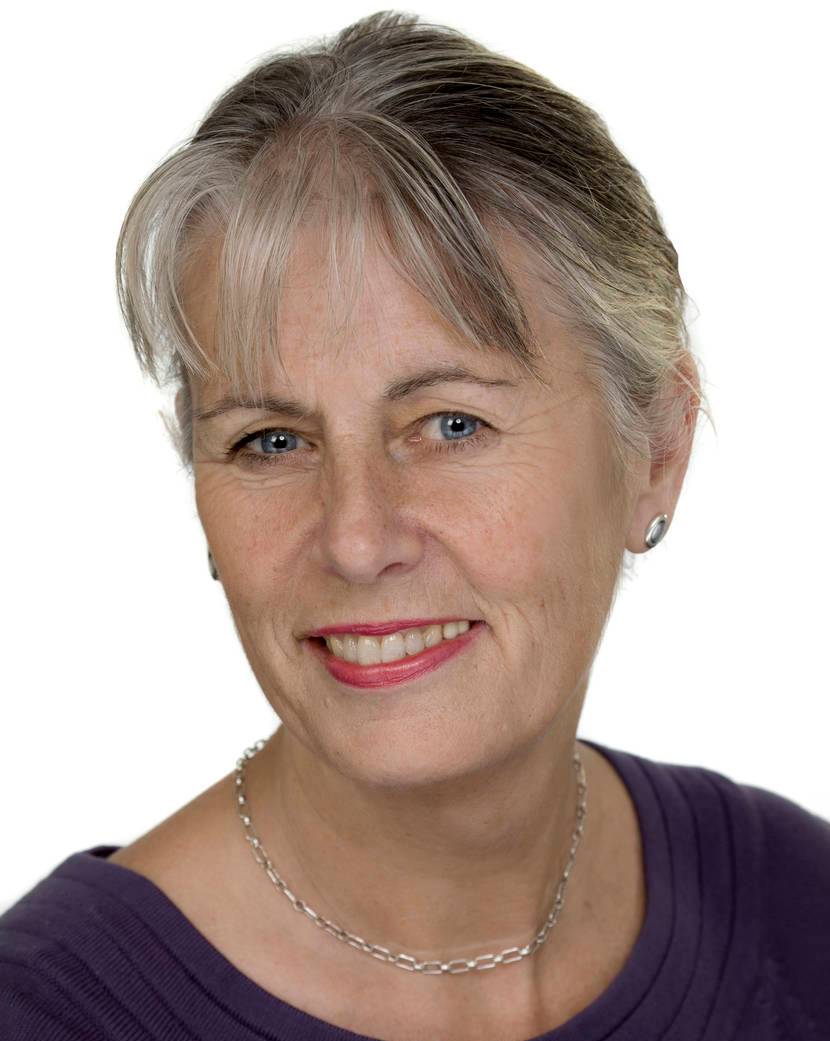
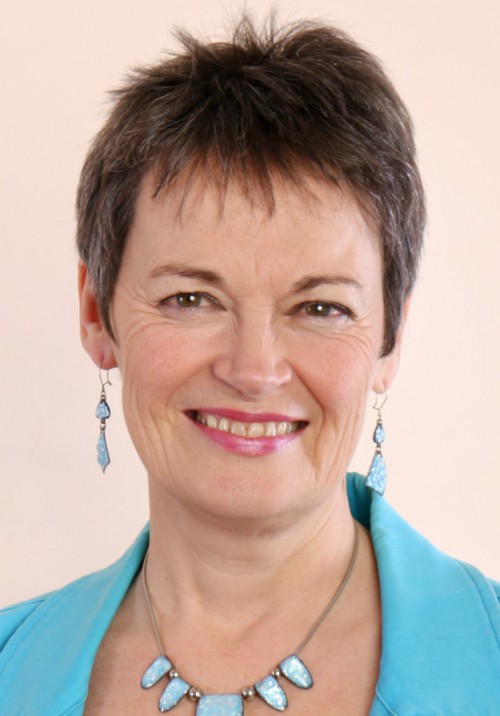
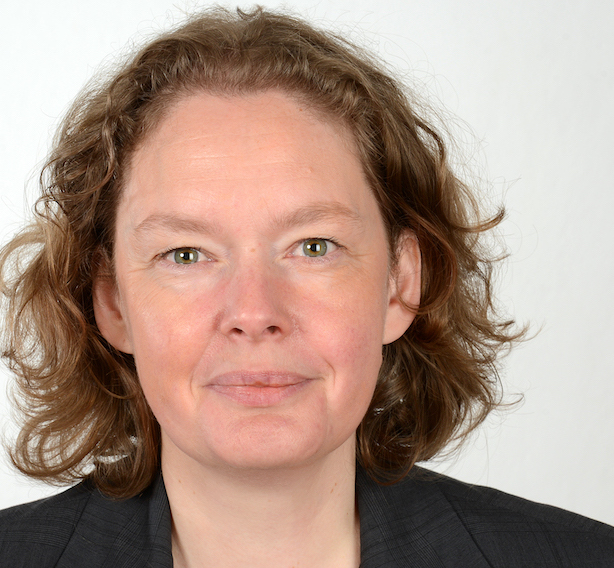
0:00 Intros Heidi
2:25 Ann Roberts
3:58 Jane Duncan Rogers
6:05 Bettina Wichers
7:40 What does CONSCIOUS AGEING to you? Breakouts
8;37 Elmar Lorenz shares
11:59 David Satterlee
13:25 Hans Kalben
15:55 Michael Scott, Cindy and Elmar Lorenz figuring out who is next to speak
16;30 Cindy: “I am dying to….”
16:50 Michael Scott about elderly parent with chronic disease. Being with the dying. Learning new languages for communicating. Abuses towards the dying, making them objects.
18:58 Heidi talks about the project Conscious Ageing
19:55 Heidi shares a short slideshow
26:00 Jane acknowledges grief and the people being present at the topic which nobody really wants to talk about. Jane’s “End of life plan” leads to becoming more present to life and enjoying it.
40:00 Bettina talks about Dementia from an integral perspective. Slide with 4 quadrants.
50:00 Future research with Terry o’Fallon on Dementia, for the next conference
51:15 Bettina in the Wisdom Factory on Dementia in English and in German
51:35 Ann Roberts: her story how she came to be interested in conscious Ageing: the club-sandwich-generation: 4 generations. M.C. Bateson: adulthood 2.
57:35 Screenshare by Ann: Blog Wisdom in Action
58:40 Heidi announcements and invitation for questions.
59:20 Cindy Lorenz: Corona leads to look closer at death and to live more in the now.
1:00:15 Jane shares: looking at death is a positive experience
01:26 Ann Roberts adds to the topic Coronavirus: What is immune resilience? Work what is true but partial. Suggestion: Dr. Zak Bush
03:10 Victor from Singapore: Being nearer to our higher power/God through Coronavirus. “The end will be the beginning”
04:56 Gertraud Wegst: Appreciating the session. Being with dying parents took the fear of death away. Forgiveness and alleviate the fear of the dying. Nothing to fear!
08:00 Heidi Being with the dying is difficult, but a great gift
09:25 Michael Scott: Learning experience when accompanying the dying. What do we think what will happen after death?
11:45 Anatoly Belyaev: the closeness with his mother emerged in the last year. He helped her to forgive whom she hated. Also Talked about that with his father.
17: ff Heidi starts the closing
18:15 Commitment to learn about death
Conscious Ageing for Iec

What is Conscious Ageing? – The series in The Wisdom Factory
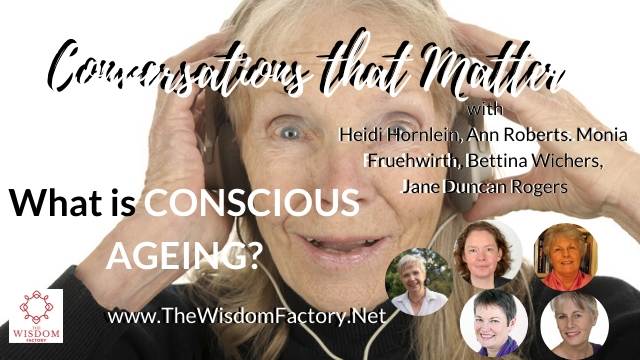
HEIDI´S INTRO
Conscious Ageing: getting older as a chance for wisdom
In the past we thought that with 60 we are old and from now on we were sort of waiting for death. People could go in retirement at that age and retirement often meant losing purpose in life which was connected with the previous occupation.
Here in Italy where I live, there was a time when people could go into “mini retirement” with 40, getting a monthly pension and feeling free to try out something new in their lives. Now the state has decided that “being old” actually starts with 67 and so the restart into something new certainly is not as easy as with 40. But nonetheless it is possible – if we are open minded enough and value older age as a source of rich experience and wisdom which influences our choices instead of believing to be doomed to die, anyway, some time soon.
What was called “old age” before , is now called “adulthood two” with the words of Ann Roberts, guest in the panel for the Integral European Conference. Certainly, there are challenges, the probabilities increase with age that some functions of our bodies decrease, but other might increase if we train ourselves in living our lives in a conscious way.
We need to start with “ageing” itself as a concept and fact in human life. We push it away, we hope to be able to avoid it by neither talking about it, nor preparing for it in a balanced way. We pretend to be younger than we are by creating a youthful persona or even do plastic surgery in order to hide the changes which our body is undergoing.
Age and ageing is a taboo, even more so illness and death, and strangely enough even the things we normally consider “good”, like love and sex in older years. Young people often feel awkward when they are confronted with the sex life of their parents. What is so strange about ir? Is sex still seen as only “allowed” for reproductive reasons? Why should young people naturally enjoy sex and older people should be somehow “on the other side”?
These are topics which the women of the Conscious ageing panel are addressing for the conference. They want to inspire other people who enter into the second adulthood, to value the years to come, to explore the possibilities and to see the emerging realities from a welcoming and resourceful perspective.
In this post I publish our “rehearsal” for our contribution for the conference which will take place on Saturday, May 30th 2020. Whether or not we will touch the same topics in the same way as here is up to the moment. We also want to give a possibility to the audience to actively participate in the conversation.
If you are interested in joining us or any of the many other presentations on a huge variety of topics, you can register for the conference at https://integraleuropeanconference.com/online-2020/
Previous conversations with the guests
Ann Roberts:
Active Wisdom: an inquiry into elderhood https://thewisdomfactory.net/ann-roberts-2/ September 2019
Conscious Ageing panel https://thewisdomfactory.net/conscious-ageing-panel/ September 2019
What grandparents can give us and our children https://thewisdomfactory.net/ann-roberts/ February 2017
Co-creative conversations: an example. https://thewisdomfactory.net/co-creative-conversations-an-example/ May 2020
WEBSITE: http://bit.ly/ActiveWisdomProgram
Jane Duncan Rogers
Ageing: the secret behind the greatest opportunity you’ve ever had https://thewisdomfactory.net/jane-duncan-rogers/ March 2018
My partner died. I was present. And now? https://thewisdomfactory.net/my-partner-died/ November 2018
A conversation with Heidi : when you face the end https://thewisdomfactory.net/panel-ageing-5/ March 2019
Co-creative conversations: an example. https://thewisdomfactory.net/co-creative-conversations-an-example/ May 2020
WEBSITES: http://beforeigosolutions.com/ www.giftedbygrief.com
Bettina Wichers
Dementia integral (english), Demenz aus der integralen Perspektive (german) Co-creative conversations: an example. https://thewisdomfactory.net/bettina-wichers/ January/April 2029
Co-creative conversations: an example. https://thewisdomfactory.net/co-creative-conversations-an-example/ May 2020
Monia Frühwirth
Monia has co-hosted many conversations with Heidi. You find them when inserting her name in the search function at www.TheWisdomFactory.net Below a few of them.
ABOUT page: https://thewisdomfactory.net/monia-fruhwirth/
Regular guest
- in the German speaking Women’s groups Die Frauen am virtuellen Brunnen https://thewisdomfactory.net/die-gesprache-am-brunnen/
- And in english speaking womens’ group WOMEN MATTERS https://thewisdomfactory.net/women-matters/
- On ageing: Integral life practice in any age https://youtu.be/eZeCoyQUkOc December 2016
- Drugs and consciousness (with Mark Davenport) https://youtu.be/eZeCoyQUkOc June 2017
- Co-creative conversations: an example. https://thewisdomfactory.net/co-creative-conversations-an-example/ May 2020
- Ko-kreative Gespräche https://thewisdomfactory.net/ko-kreative-gesprache/ April 2020
- Was kommt nach dem Feminismus? https://thewisdomfactory.net/was-kommt-nach-dem-feminismus/
Co-creative conversations: an example

CONVERSATIONS THAT MATTER – CONSCIOUS AGEING
Preparing for the conference: an example for a co-creative conversation
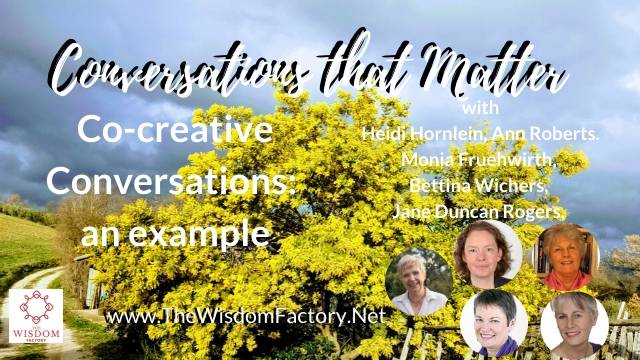
Five women came together to prepare for a shared contribution for the upcoming Integral European Conference. During the conversation they realised that they had been engaging in a co-creative way and the idea arose to publish it as an example. Thus the topic – Conscious Ageing and also death through Corona – is not the important thing why you might watch it, but the way the women self-organised in arriving at the desired result.
Some thoughts on a “co-creative dialogue”
We have talked about co-creativity in the past and identified some of the characteristics which stand out as opposed to debates and discussions. Co-creative conversations leave the participants with a feeling of joy, satisfaction, empowerment and inspiration – while the outcome of discussions and debates often is the direct opposite. There everyone fights for being recognized, for being right, for having won the argument battle.
A co-creative conversation is the direct opposite. Everyone is recognised by the others as having an important piece to contribute to the topic and in the flow of the conversations these puzzle pieces arise and get woven together into the desired result of the conversation. Listening to each other, respecting each other and being open to what wants to emerge is the main tool kit for these conversations. No criticism, but questions. Questions lead further and further into the process of coming to the root of the topic and to the envisioned goal.
During the conversation things might seem to go astray, tangents are introduced, especially those who take into consideration the interiority of the participants, e.g. “How is it for you when….”, or “what is your experience with …”.
The “normal” way of a meeting has a specific topic and the way of proceeding often articulates itself like: “What can you, xwz, bring to the table?, Is the contribution of x better than that of y? We need to decide on a concrete plan: who does what when” etc. The meeting might be short, everything is “clear”, everyone knows what they need to do. But how is their mood now? Did x feel overrun by the decision that the idea of z had been preferred to his own? Does he understand why? Does he feel motivated to collaborate under these circumstances where he feels to be the loser? Does he have a suggestion or a preoccupation which he doesn’t dare to mention for fear to be turned down, again and so it remains unspoken and haunts his dreams for not having stepped up despite his insights of importance?
This “normal” way is what I call the “masculine way”. Straight forward, linear, restricted to a few threads, leaving out all the others, in a setting of hierarchy or at least of competition. The “feminine way” is different and surely more satisfactory, because it includes the whole humans and not only a few of their competences. From the perspective of the masculine way, the feminine way is deviating from the topic, time is spent uselessly on “unimportant things” and so on.
We women have been trying to adjust to the masculine expectation of how things need to be done – only to find out that it doesn’t really work for us, unless we want to become stressed out and finally more masculine than men. So it is not by chance that women love to engage in co-creative conversations which are “feminine” in many aspects. That is not to say that men are not able to engage in co-creative dialogues. Those who are able to step back from the all pervasive linearity and adopt listening skills certainly can. Nevertheless, in my experience, it is very hard for men to resist their tendency to take over, to assume leadership and try to direct the otherwise open ended emergence.
More often than not we find this sort of conversation in women-only groups. But just a bunch of women does not guarantee it at all. They need to express their willingness of exploring the ground together and to listen to each other. For women this seems to be, generally speaking, somewhat easier than for men.
In this post I offer you a concrete example of a co-creative dialogue among women. Listen to it, not so much for the topic, (although you might also be interested in it,) but for the movement of the process. How do we conduct the conversation? How much “leadership” do I, Heidi, use? (I invited the women into the session). How do topics emerge and weave around the purpose of our conversation? How do the women step in to speak? How do they connect to the other women? How do we gain clarity and how do we arrive at the goal of the meeting?
The conversation was not meant to be published, it was our first meeting to agree on a common event for the online Integral European Conference. During the conversation I realised that we were beautifully engaging in a co-creative dialogue which was worth to be published as an example. Please notice also the way we made the agreement for publishing.
Enjoy!
Videopost for April 1st, 2020
0 Checkings. The recording starts in the middle of Monia’s check in
0:44 Ann
2:55 Bettina
5:10 Jane
8:16 Heidi gives an outline why she gathered the women and what she plans to do in this meeting
12:15 Jane’s response and a question: Our approach to Conscious Ageing, question about the timing
13:40 Heidi referring to the 1:1 conversations which she had done with all present womens
14:30 Ann; she loves the balance of our territories. Questions about the organisation
16;00 Bettina; what is the purpose of the whole thing?
17:20 Monia: Informing or sharing perspectives. She wants to be asked instead of doing a 10 minutes presentation
19:20 The purpose of Jane
20:20 Monia collects what was said. Her purpose: live life fullest to the last moment
Jane sees the connection of the purposes, the same things from different perspectives
21:50 She is not fixed on the topic of dementia, she could do a integral life practice for Conscious Ageing
23:45 Ann explains how she developed her interest in “composing a further life”. “Active wisdom” in elderhood and her interest in Integral.
28:00 Heidi tries to collect what has been said.
28:40 SHort translation into German. The Bettina: she offers her integral map on ageing
29:20 Jane asks about Integral, she thinks that her work fits in without knowing perfectly integral. She presents what she could do in her time slot. Shall she refer to the corona virus?
30:50 Heidi: the contribution should be more private and professional experience, not a theory discussion
31:35 Monia asks us all regarding a text, we read before the recording: Have you done anything to prepare for now, for the Corona Crisis? Monia tells how she prepared, living a somehow reduced life even before. Old age: preparing what is essential for me! She is not afraid.
34:05 Have you reduced a lot in the present situation? Heidi answers first
35:15 Jane answers.
36:50 Ann answers. Appreciates the shift in the conversation. Taking the risk in favour of relationship.
39:35 Main topic: Maybe “what is essential?” Do we include corona in our presentation?
40:00 Is survival = quality of life? Question to Bettina, the only of us who had to reduce due to corona.
Bettina answers: dying is forbidding because of corona: trying to save people by killing them. She as a gerontologist cannot work at the moment. She is completely against isolation of old people, instead favors palliative care. Shadows and anxiety of their own dying on the part of the scientists. People need to have the possibility to leave this existence! And in a
45:25 Jane replies her observation: The real issue: we are afraid of dying and nobody talks about it.
46:00 Heidi puts the situation into the integral framework. Suggestion for the online contribution for the conference: Assert that we need to include the left hand quadrants into the consideration of measurements in medicine
47:58 Monia asks Jane about “Grace and Grid”. Jane sees the crisis as a wakeup call. Without the present restrictions we wouldn’t have the opportunity to learn about the importance of considering interiority and death.
49:05 Ann: talking about Hübls meditation calls: Steven Jenkinson (teh calling for elders to speak and be wise) the movement exists, but not in the media. Timings in the transition in the humanity level. Incarnation of wise souls: How do we stay expansive for the opportunity despite the hardships people are going through? Why are we reacting the way we are? – Ann realises that she is taking the conversation in a tangent. We are happy with it.
52:30 Bettina sees a polarity between gero-cracy and gero-transcendence. She meets old people who say: you don’t need to keep children from playing at the playgrounds to save me! Give back the opportunity to the old to speak from their wisdom.
55:55 Monia speaks about the relief to not seeing tourists crowding Vienna. How much will be able to reduce?
55:50 Coming back to what to do next for the conference? Heidi mentiones that what we were talking here would also be good to publish
56:35 Monia asks Bettina why she would not use her dementia expertise for the event. Dementia is another shadow for people who put it away. Bettina answers: it would be too much for the panel. She would do a panel with Terry oFallon in another panel.> Bettina needs to contact the organisers about that
58:15 Feedback/metaview on our meeting by Ann: feeling of empowerment. She wants to get back into the world and take the risk to see her grandson. She feels able to be responsable for that, She is called to speak more for that. Appreciating MOnia’s ability of sensing into the question which moves the energy of the collective.
1:00:00 Heidi asks if she could publish our conversation, an example of the feminine way.
1:01:00 Check outs starting. Appreciation by Monia.
1:01:30 Jane: feels nourished by the conversation
1:02:05 Bettina: It is time for her to come out of her volontary retreat
1:02:55 Heidi: My purpose to bring people together in a common level: an example of co-creativity
1:03:30 Ann interfers to talk about the idea of publishing our meeting, which was not intended as a video for publication. She wants to check in if we are comfortable to be published. This opens a new topic of co-creative conversation.
1:05:05 Monia: why should you be afraid of others knowing you? – Ann thinks about her daughter who is concerned for social media.
1:05:55 Heidi proposes what the procedure for publishing could be
1:06:25 Bettina sees the importance of this impuls
1:06:53 Jane has no problems with being public
1:07:20 Ann feels heard and appreciates it
1:07:30 Monia: “I am too old to be afraid”

CONSCIOUS AGEING
February 13th, 2019 at 7pm UTC+1
INTEGRAL DEMENTIA
Bettina Wichers is a german gerontologist who primarily focuses on improving old peoples’s health from an integral perspective.
READ MORE AND GO TO THE LIVE STREAMING PAGE
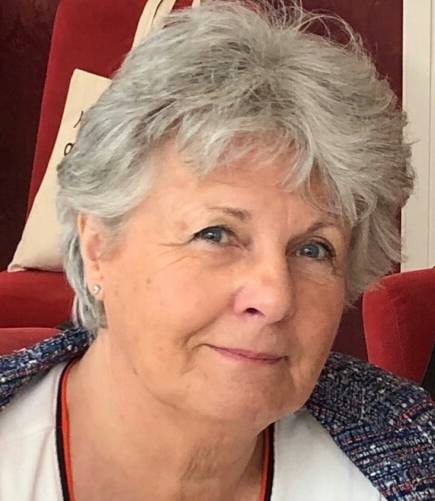
See another vent with Monia and Infos in her personal page within The Wisdom Factory
One of the many panel discussions in which Monia participated: Gerotranscendence
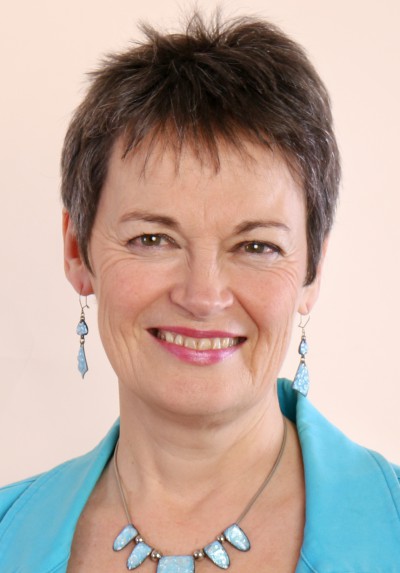
Jane Duncan Rogers was devastated when her husband died in 2011. Little did she know that 3 years on she would be publishing a book called Gifted By Grief, (and truly felt she had been) and then to become founding director in 2017 of Before I Go Solutions, a not-for-profit that helps people to make good end of life plans.
In August 2018 her second book, Before I Go: The Essential Guide to Creating A Good End of Life Plan was published, and the Before I Go Academy was also started, enabling health professionals to become licensed facilitators of the BIG Method, bringing this much-needed work to their local communities. Jane lives in the north of Scotland, and has a new partner with whom she is building a house together.
RESOURCES
See another vent with Monia and Infos in her personal page within The Wisdom Factory
One of the many panel discussions in which Monia participated: Gerotranscendence
CONSCIOUS AGEING
February 13th, 2019 at 7pm UTC+1
INTEGRAL DEMENTIA
Bettina Wichers is a german gerontologist who primarily focuses on improving old peoples’s health from an integral perspective.
READ MORE AND GO TO THE LIVE STREAMING PAGE
Jane Duncan Rogers was devastated when her husband died in 2011. Little did she know that 3 years on she would be publishing a book called Gifted By Grief, (and truly felt she had been) and then to become founding director in 2017 of Before I Go Solutions, a not-for-profit that helps people to make good end of life plans.
In August 2018 her second book, Before I Go: The Essential Guide to Creating A Good End of Life Plan was published, and the Before I Go Academy was also started, enabling health professionals to become licensed facilitators of the BIG Method, bringing this much-needed work to their local communities. Jane lives in the north of Scotland, and has a new partner with whom she is building a house together.
VISIT OUR OTHER WEBPAGES
Cee

CONVERSATIONS THAT MATTER – CONSCIOUS LIVING CONSCIOUS DYING
Corona and the fear of death – with Cee
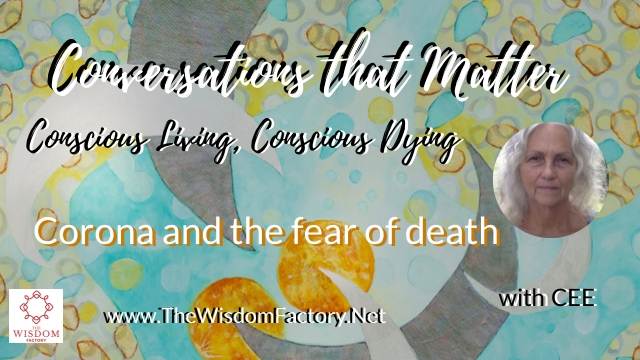
Heidi writes
Corona and the fear of death: Why spiritual practice is important.
We are going through the Corona crisis right now. The measurements taken by our governments probably make sense, everyone in the world is impacted in one way or another. For some people it might be the loss of their work, lack of income and food insecurity. Others lose family members and friends to the illness, and most of us are living in various levels of fear which is maintained constantly by the media, by the numbers of infected people and deaths. We are afraid of losing loved ones – and of getting infected ourselves. That could mean that we, ourselves, have to face death, not some time later, but right now, as a real possibility.
We live in a world which has excluded death from our lives. Modern medicine pretends to be able to treat every illness with ever more sophisticated machinery and drugs. Death equals failure, so it should not happen. And if it does, better don’t engage with it too much, take the body away as soon as possible, forget about it.
This, certainly, is not the best way for dying, neither for the person in their dying process, nor for those around them. In that very vulnerable moment we would need support, not by machines, but by compassionate human beings who listen to our life story, who reassure us that our life was worth living, that our existence and our struggles were acknowledged. We want to feel safe, embraced by somebody we love, when we have to face this important transition. We want to feel calm when the unavoidable arrives. And we want to bless those around us, thank them for their assistance and hope that they will have a compassionate person around when their hour has come.
The fear of death leads many people to hide and ignore it as much as possible, and so they deprive the dying person from that support which is so crucial in these moments. This is a real shame. All the people I know, who have witnessed and assisted a dying person, have lived it as a gift, a blessing, a difficult but deeply rewarding experience which quite often lowers the fear of their own death. An experience to seek out instead of trying to avoid it!
Now tens and hundreds of people are dying of Corona. We would have enough possibility to face death in a constructive, humane way. Instead their lungs are forced to take in oxygen – an immense suffering for the human involved. They might survive, about 30% do, but is the suffering worth the extra days or weeks of living on this earth in absolutely unpleasant circumstances? Does pure survival of the body outweigh the quality of life?
These are difficult questions. Every human being needs to ask them. And also: how do I want to die? Do I want to die in suffering and fear? Or do I want to be confident and calm when the moment comes? What can I do to prepare myself?
The modern materialistic worldview, where our health systems are located, doesn’t have any answer to that. God is dead and spirituality laughed upon as superstition. Any other worldview, pre- or post rational, has a way to include the transcendent into human life and to help people to face death as a transition, as the most important event in the life for us humans. The key is spiritual practice of one sort or other.
There are many spiritual paths, traditions which reach back thousands of years or newly “invented” practices which can lead to the same goals. Humans have different affinities and tastes, and the same is valid for spiritual paths: what is good for me might not be good for you! We need to try to walk them in order to understand which one, finally, to stick with.
My guest, Cee, did exactly that. She started with a guru who admonished his students to concentrate on him and so enlightenment would arrive, somehow – which didn’t work for her. When she met Advaita Vedanta, she found the appropriate path, she found her life purpose and her personal development by practicing it and harvesting its benefits. It was a delight to talk with her about the meaning of life and death and how we can inspire others to face these important topics instead of succumbing to fear and desperation.
Videopost for Mai 13th, 2020
0:00 Intro Heidi
1:00 Cee talks about her life experience: the question “why am I here”? The search journey.
3:18 Spiritual teaching with different focus. “Look in” instead of looking outside.
4:10 Art started as a way to be and for processing. Topic: express pure consciousness. The eye in her paintings. Writing.
6:20 Heidi refers to the present Corona times and the orientation outside.
7:00 A “sacred pause”. Phases in life where to pause and reflect.
8:27 Advaita Vedanta view: the present moment is the only real thing, past and future is a thought in the mind. Everything is still like a dream, despite it seeming real.
9:50 Who is aware of the dream? Aware of the present moment? Fear is just a thought.
11:25 life is not “real” for most people with that definition. The power of habits and pretension of the ego. Fear of losing everything when living in the present moment.
13:20 Times in normal life when we don’t have a self, everything is gone, which is not uncomfortable. Deep dreamless sleep: no sense of the egoic self and we love to let go and be our true self.
15:20 Cee worked in hospice. Her curiosity about what is people’s experience. Practice before the end of life to realise that you are not your body. Many people are extremely fearful of death. The sacred pause, a wakeup call to enter a path of awakening.
17;45 About death and the state of compassion and acceptance, Heidi talks about Mark, her husband.
19:00 What can people do except a traditional path? – What activities made me feel most happy. That can become your spiritual practice. Example: gardening.
20:30 Noticing who you are when you are not in the thinking. Practice the peaceful you which can be helpful on the deathbed. Learning to realise it.
What does it mean: not “thinking”? – when you are in the thinking mind, you cannot know it. The space in between thoughts. Just be quiet and notice and come in to yourself. Many brances of practice come to the same result: the same one.
24:15 The contradiction
24:40 Cee’s work in the hospice: why is dying so problematic? – The society hides death. Why are we so afraid of death?
26:12 Let’s start now and talk about it! Be present with the dying person. Listen is the biggest gift you can give anyone. Dying people want to tell their story and feel appreciated. TUne in your listening skills!
27:40 Dying in the corona crisis – a truly inhumane way. But if you, dying, are already in peace, it will help you, no matter where you are. Start practicing that now!
28:58 If you are old and sick: why go to the hospital? Then you are forced into the machinery of modern medicine.
30:25 People around in anxiety when confronted with your death. What would you do? Stai home in my age – unless her family is urging her.
31:50 Many people hang on, just for their family. If you are the loved one: let them go! Accept their process. It is difficult to let the other go. Heidi’s experience with Mark’s dying.
33:30 You have a decision power over your death. With a good spiritual suffering: suffering in life before death? Not being attached to the body then it will be like a dream to witness.
36:40 Who am I? The most important question. You are who witnesses this world. We are all the same One.
38:00 Answers: existence, consciousness, bliss. All the same. (spiritual) psychological “yes, but how many”
39:50 Consciousness: simpler than we think: Conscious of something as opposed to something without special focus.
41:10 The solution in this world is: Wake up, grow up, clean up, show up.
42:15 Info about Cee’s books “The way of knowledge”, “The myth of seeing”. www.art-cee.org
About Cee
The focus of Cee’s life has been spirituality and art. Interested in the meaning of life at an early age, she spent decades exploring wisdom teachings and practicing meditation. She has taught Advaita Vedanta, cared for dying people through hospice, and written two books about Consciousness. Cee has created hundreds of paintings and sculptures exploring spirituality and shows her art widely. She received a BFA from the San Francisco Art Institute, an MFA from Mills College and won the Jay Defeo award.
Where to find Cee
Where to find Cee’ books
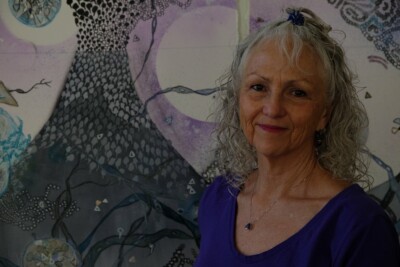
Cee on social media:
instagram @ceemakesart
email ceeinhana@gmail.com
RESOURCES
VISIT OUR OTHER WEBPAGES
Ageing is a spiritual process
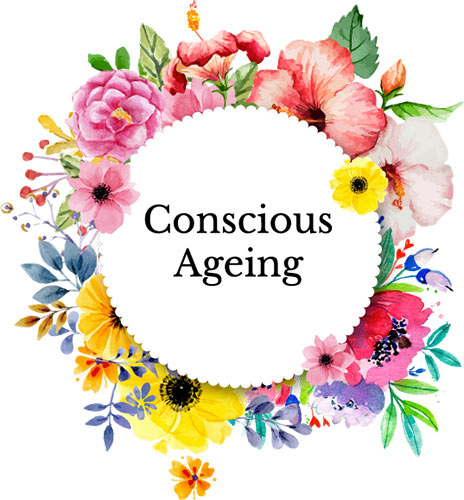
CONSCIOUS AGEING: Seasonv#6, Episode 12
Ageing, a spiritual process with Paul Smith
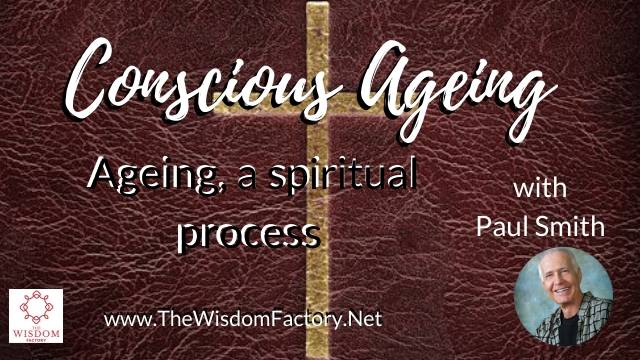
Paul Smith is a Christian mystic, author, and retired Baptist minister. For the last twenty years he has taught about Integral Christianity. At age 82 he is still pioneering in the further evolution of Christianity in the creation of a world-wide network of small “WeSpace” groups.
HEIDI WRITES
All religious traditions were born because of the mystical experience of their founder. In these experiences they met God without any doubt. They understood life and death and the deeper reality of the Kosmos, our planet, Nature and ourselves. As long as the followers could tap into the same source of knowing and wisdom, the religions were practiced in a life enhancing way. As soon as there was the need of just BELIEVE what others told about their experience and a hierarchical structure began to form inside the religious communities, the legitimacy of the religions diminished more and more, to the point when people are naturally growing out of the dependency.
Since the enlightenment, people started to be sceptical of religious beliefs. In modern culture religions are seen as superstitions and therefore not acceptable as any form of guidance. Instead of the “old man with beard sitting on a cloud in the sky”, the new emerging God was SCIENCE, the idea that everything could be explicable by a scientific approach. Materialistic science pretended to be able to decide what is right and what is wrong, as well as what is doable and what not.
Ken Wilber and his 4 Quadrant model of reality shows clearly, that this cannot work. While previously the “left hand quadrants” (the interior perspective) believed to be authorized to decide what is right in the material world – remember Galileo and his fight for the recognition of the earth being round, not flat -, the scientific era tried, and still tries to a certain extent, to colonize the interior world with its exclusive exterior perspective. Only what can be measured is real. Feelings, for example, cannot be measured, and therefore they are not real, they are negligible, they don’t really exist.
It is time now to see reality from all 4 perspectives!
The Christian Church has lasted for 2ooo years. It has created institutions and rules which were crucial for the people to grow up, especially from the highly destructive and war loving egocentric stage to the conventional stage, where morality appeared and the individual responsibility of the people for their actions in the world. It was a huge step “up the spiral” (See “Spiral Dynamics”). It was widely based on suppression of lived impulses by the leading powers. With modernity people started to refuse to be dominated by religious powers and established wordly power systems which went into clear competition, about the meaning of life and how to act in the world.
Growing up into modernity people lost their faith into a higher power. The technological progress proposed to the powerful humans to consider themselves as almighty entities. No God in the skies needed, now we play God ourselves! In the next developmental stage, the post-modern stage, the lack of a reality greater than our small selves became evident and people searched for something which could “bind them back” (=re-legare = religion). The spiritual quest began, mainly by trying out exotic types of religions because Christianity carried the stigma of a suppressing super power which we didn’t want to re-embrace.
We Westerners are deeply imprinted by Christian culture. All achievements today are based on these 2000 years of Christianity in our countries. Adopting foreign religions seems to be more like a band aid on the deep wound which the shadow of the past is still casting on our hearts. Real growth happens by transcending and including what was before. We have transcended Christianity successfully, but we have missed out the second part, the inclusion.
It is time to do so, for our own sake, as a person and as a member of the world society.
Thanks to INTEGRAL THEORY we have a map to guide us in this process. We can learn to discriminate between the essence of the spiritual message and the structure which has been built around it. Stripping away dogmatism and power hierarchies, we can get back to the practices of the first time of the religious movement when community and experience were in the forefront, instead of organisation and power expression. We can go back to experience God ourselves, we do not depend on priests who pretend to tell us what God wants us to do, we are autonomous and independent of dogma in our research for the sacred.
Having said all this, I want to address human life, especially the ageing process. People in our culture are afraid of death. The menaces of our church authorities, their keeping us obedient by attributing us hell after death if we don’t obey their ideas, has created a deep collective fear of what will happen when we die. We do not know how to address this fear, and therefore we try to ignore the existence of death as long as possible. We try to hide that we are getting older, we try to “stay young”, for not being reminded that we don’t have an answer for the ultimate question. Nevertheless, it happens often that people in later years or even shortly before dying have an epiphany of recognition of the Sacred. Where to go with that? Who can help to integrate this experience?
Some people go back to the traditional church after such spiritual experiences. Professional religious people are not necessarily the right conversation partners. Their professional training still excludes the inner experience of God which is accessible to everybody. They are mainly living in their heads, hardly in their hearts, and that is the place where mystical experience would be located. Thanks to Integral Theory we now know about the “Three Faces of God” and evolved people recognise them, practice them and teach them to others. This is a new form of “CHURCH”, very different from what we have known so far. It is especially helpful for the deep existential questions in people who have outgrown their childhood religion and now want to be “bound back” to something higher and bigger than themselves.
Where to go?
Paul Smith, the guest in this episode, has written several books on the topic. “Integral Christianity” has aroused a lot of attention inside the integral community, as well as the German based book “God 9.0” written by a team of German theologians. Both books resolve the felt contradictions of Christianity by explaining the evolution of faith alongside with the personal development. And both bring back the mystical element into spiritual/religious practice. They are real treasures for everyone who is curious about who we are, where we come from and where we are going, in search of the meaning of human life on earth.
Paul Smith, in collaboration with Luke Healey (watch my conversation with Luke HERE) have founded the “Integral Christian Network” and offer regular practice groups for people who want to dive deeper into spiritual experience, together with others. Presently a German speaking group has started to come together with huge enthusiasm and dedication, everyone happy to finally get back “their Jesus” in a way which is right for them. I am sure that, pretty soon, other groups in other languages will be formed in exploration of Christian spirituality. This is a great gift for us individuals and also for our Christianity-based culture which can turn to its roots as renewed fundaments.
Videopost published for November 27th, 2019
0:00 Heidi’s intro
2:10 Paul introduces himself, his background and life and work – evolution.
4:15 “Is it ok to call God Mother?” Paul’s first book
5:15 Paul meets Ken Wilber’s work. Helped him in his own ageing.
Definition of God: God beyond us, God beyond our understanding. God is with us and beside us. God is in us. The “three faces of God”. revolutionized Paul’s spiritual life.
8:15 Is your God big enough for your mind? Is your God close enough for your heart, is your God you enough for your deepest identity?
9:42 Heidi’s question: The God beyond us – far away from us. God is BEING itself. Paul’s relationship with Jesus. God as the loving father and mother. Jesus was a model for who we are. I am eternal – takes away the fear of death.
14:50 Teihard de Chardin: we are spiritual beings on a human journey
15:30 Heidi asks: why are people in our society so much in fear of death. Paul explains how Jesus and followers were inbedded in mystical experience. Establishment of the church controlled people with creating fear of punishment. Push back of mystical experience to maintain control and power over the people.
18:40 Prayer as state of awareness. Spiritual knowing. Higher consciousness. The story of Paul’s first experience of higher consciousness and a divine being. Before Abraham was I AM. experience of ONENESS and God’s love.
21:30 Heidi’s questions. When was experience of God allowed? How can we come to have such an experience.
23:00 Paul starts to explain. Pasters are trained to think about God, but not to experience God! Mystics always have a difficult relation ship with the church: spiritual experience makes people courageous and disobedience.
25:20 New groups are forming outside the church. “Integral Christian Network” founded by Paul. “Whole body mystical awakening”. The move into the heart space. A story.
29:10 Heidi: Singing and music has the power to bring you into the feeling space. Spiritual practices: children’s prayer versus meditative prayer.
31:15 Paul’s resources: website and books and groupm practices. Guided meditation on the website. Mystical space.
33:50 Heidi: the obstacle for modern people: states of consciousness and the fear of losing control.
35:40 Consciousness enters into the science community. Consciousness is at the bottom of everything. Heart Math measures fields of consciousness. Non-physical reality.
38:02 Testimony of Paul about a severely ill person who is in touch with that other reality.
40:00 How to pray.
42:10 Science is changing: Ervin Lazlo: Akashic fields. When dying you are still part of these fields.
45:00 Paul is a fan of Lazlo. And Information fields. Early Christians were tuning into the Akashik fields. The body becomes an antenna for the field of information. PAul: “The field of spiritual knowing”. The Universe is built of In-Formation.
48:35 The We-space groups, Heidi’s experience. Integral theory made un-understandable things understandable! With religion same things can happen. The building of a German speaking We-space Group. Heidi invites people into that. Heidi’s interview with Luke, Paul’s young collaborator.
51:55 Paul on Wilber: we need new versions of the old religions, no new religions needed. Progressive version of higher consciousness as new version of religion. Integralchristiannetwork.org to contact groups for your participation.
53:50 The “new church” probably is not to be found in your local church, we need to find other places – like our conversation on the internet. Sending out love = a new version of Church. Heidi talks about groups she is leading, e.g. the womens’ group in German.
56:35 For ageing process: the technology is a gift to stay together and connected. Shout out to people to connect!
59:00 Still evolving: life is exciting!
End of season 6 of CONSCIOUS AGEING
About Paul Smith
Paul Smith is a Christian mystic, author, and retired Baptist minister.
As a pastor of Broadway Church in Kansas City, Missouri for forty-nine years, he led the traditional Southern Baptist congregation in evolving into an inclusive, progressive, integral church focused on following the Jesus path in deeply spiritual and relevant ways in today’s world.
For the last twenty years he has taught about Integral Christianity at many venues around the country, as well as in numerous TV, radio, newspaper, internet interviews, and journals such as Tikkun and the Integral Life website. He is the author of Integral Christianity: The Spirit’s Call to Evolve and the recent Is Your God Big Enough? Close Enough? You Enough? Jesus and the Three Faces of God.
At age 82 he is still pioneering in the further evolution of Christianity in the creation of a world-wide network of small “WeSpace” groups. The groups meet every other week on Zoom to share and engage in the Whole Body Mystical Awakening that is the heart of the WeSpace spiritual practice.
His websites are www.revpaulsmith.com and www.integralchristiannetwork.org
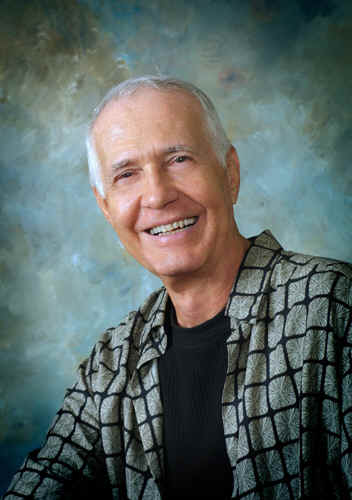
RESOURCES
Paul Smith, author of “Integral Christianity”
Discovering Integral Christianity with Luke Healey
VISIT OUR OTHER WEBPAGES
Embracing the Ageing Process with Toni LaMotta

VLOG – CONVERSATIONS THAT MATTER
Embracing the Ageing process
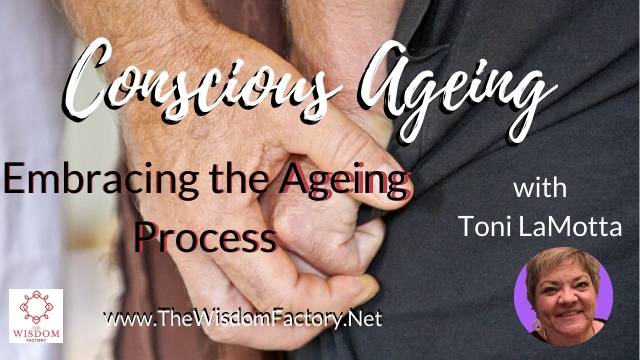
We have the chance to change perspective on Ageing. It is widely a taboo and everyone tries to stay as young as possible. But what if we embraced the gifts which come with ageing? Yes, there are gifts, and embracing them allows us to lose the constant fear which is so pervasive in our society.
HEIDI WRITES
In former times, ageing and death were considered normal parts of life. Nobody questioned them. You just got old and had to die. In the Christian belief you would be resurrected one day. People were able to find consolation in this idea, as well as in the certainty of the love of God.
With the renaissance, this certainty started to wither. Even more people no longer believed in a God in the sky somewhere. They became atheists, and with that lost the spiritual way of dealing with death. Our Western societies are still caught in this denial of a higher power – and in the fear of death. They believe in a “Human Almighty”, and the outburst of incredible technology seems to confirm this assumption.
Believing in God, or in any form of higher power, became considered primitive or old fashioned. Nevertheless, when approaching death, many hard core atheists are reported to have converted their ideas, they have become religious. Why?
We humans are wired to ask these questions: “why am I here, where do I come from, where will I be after death?” When we go deeper and deeper with these questions which, traditionally, the church was expected to give the right answers to, we are finding meaning in our lives. Today, we have to find the “right” answers ourselves. There are many, many spiritual teachers and communities where we can flock to, hoping to find what we are looking for.
This happens sometimes in younger years, but older people are coming inevitably in direct touch with death, their own or that of their loved ones, and so they are pushed into these questions naturally. From there the next questions arise: “How shall I now lead the rest of my life? What is really important to me and how can I cope with the many obvious changes which ageing is bringing along?”
These, ultimately, are spiritual questions. Spirituality becomes a real concern. We might find these answers, but this is not the point. What we really do is integrating a part of ourselves which we seemed to have lost. We have the chance to loosen the fear and to lead a life of joy and fulfilment, where death is the ultimate amazing experience for our existence on this planet. But how can we do that?
Our guest today, Toni LaMotta, has written many books on conscious ageing and is offering courses for the difficult time of transition into elderhood. Officially there is little support in our societies. Ageing is a taboo, don’t talk about it, don’t ask questions and try to appear externally as young as possible in order to mask the fact that the years are passing.
So what to do and where to go when we are interested in knowing ourselves better and mastering the unavoidable challenges? Thank God, we have those pioneers who have dedicated their lives to help with the ageing process, as well as with the dying process. They certainly don’t get rich by what they are doing. People seem to be ashamed to ask for help in their situation, they think to have to go through these life challenges with closed eyes and some magical beliefs that they can somehow get out of it by “hiding before God and the death angel”.
How sad is that!
Living in constant fear of the future and engaging with all sorts of things which can occupy their heads in order to not ask the important questions, is cutting down the quality of our lives. We could learn to live in love and confidence, if we wanted to. Yes, some inner work is needed. But isn’t that the real task and meaning of our lives: to get to know ourselves in a deep way and live our purpose – instead of passing our time with trifles and external glory ?
Published for November 20th, 2019
0:00 Heidi short Intro
0:40 The Background of Toni. From Catholic nun to “New thought Minister” and a passion for speaking. Coaching people in spiritual development. Doctorate, studies in adult development leads to Ken Wilber, Terry O’Fallon.
4:45 “The Midlife Mentor”, What does the adult development mean for Ageing? How to embrace the ageing process? A book and a course.
7:50 4 aspects. First: Looking at the fear and learning “Treatment” to work through fears.
8:40 Paul Smith (Integral Christianity)? 3-faces of God was enlightening for her and taught the idea of a personal God. Involved in the we-Space groups. Coming back to her personal roots. “Religious Science” doesn’t always call itself Christian, Learning now to integrate Christian roots.
11:00 Heidi: we threw out the baby with the bathwater when abandoning the traditional church. Coming back by Jordan Peterson’s “Biblical Lectures”.
12:39 Toni: She teaches Pauls work to Ministerial students- several of whom are former Baptists. Transcend and include
13:40 Ageing process: We come to know who we really are. Less eyesight = more insight. Opportunity to look at the gift!
15:45 Ageing consciously = growing spiritually. Letting go and learning to be, stop all the doing.
16:30 Heidi: the gift:questions of who we really are. Calming the fear, impacting our present life. Becoming “being”
18:30 Toni: Illness experience, the challenges leading to “nowhere to go, nothing to do” became her mantra. Prioritizes what is important in life.
19:44 Heidi: Keeping oneself busy. Going inside, developing spiritually, we can also contribute
21: Just being, the presence, means a lot.
Second aspect: doing a life review Ira Progoff. “The intensive journal”. What does my life wish to become? Has previous life still potential? Going back to the roots, also Jane Fonda recommends life review
23:30 Often we see only the negative things in the past. Here: “Failing means the first attempt in learning”. Look for the same experience
26:30 Whatever you wanted to do, still do it at any age. Heidi going back to singing? Toni can listen instead of singing herself to enjoy the same passion: same experience, different way.
28:10
Fourth aspect: preparing for death: what do I really want to become? Write your own obituary: what do you want others to say about you?
31:10 Typology: Celebrating differences; Recognizing oneness.
32:50 Let life happen.
34:30 Techniques of the journaling. Stepping stones which change in time. In dialogue. Etc. dreams.
38:99 An example
40:15 Life review is self therapy with the right tools. Can you do it online? Example. The more time you work, the deeper you go.
44:05 Twilight imaging. Dealing with concrete things which are happening, and look at the spiritual realm, the meaning dimension, what’s the gift.
46:00 Making peace with one’s life before dying. Forgiveness, no judgement
47 Several versions of oneself, need of new things in life.
49:45 Similarities between Heidi and Toni.
50:30 Heidi about how Conscious Ageing in the Wisdom Factory developed.
52:00 Need of changing how people see ageing.
53:30 starting to wrap up: final question: what can you recommend?
54:25 Instead of looking for what’s wrong, look for the gift in what is happening.
56:20 Heidi: surround us with people who are positive”
57:20 Info about Toni: tonilamotta.com, several Books on Amazon (see below)
58:55 Call to action: Express your interest in a life review course, so we will create it more easily.
Books on Ageing – https://tonilamotta.com/wp-admin/post.php?post=1661&action=edit
https://www.amazon.com/s?k=toni+lamotta&ref=nb_sb_noss Books by Dr. Toni
About Dr. Toni LaMotta
Toni is a provocative, inspiring speaker, best-selling author & life coach. Her vision is to change the way the world views midlife & ageing. She inspires people to explore what they can be when they operate authentically and consciously at every age.
She is the author of RECOGNITION: The Quality Way, the #1 best-selling book: What You REALLY Want, Wants You and several works on Conscious Ageing.
Toni holds a Doctorate in Religious Studies, a Doctor of Divinity degree; three Masters Degrees – in Pastoral Ministry, Adult Education, and Mathematics. (a truly whole-brain individual.) Her wit and wisdom speak to both the head and the heart.
Toni’s website https://tonilamotta.com/
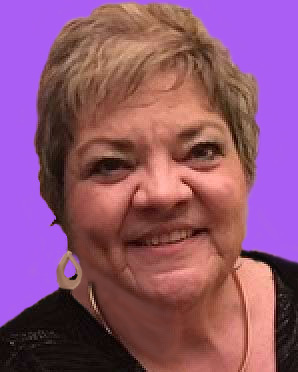
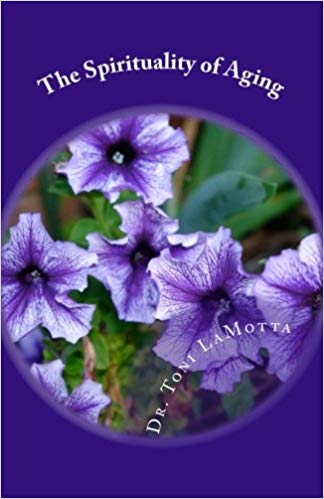
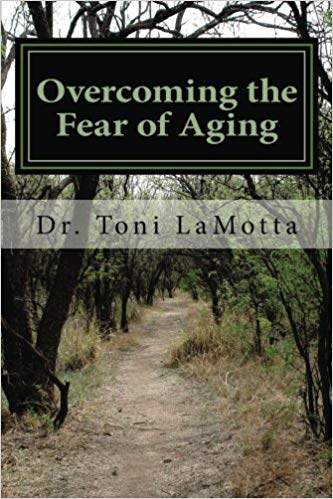
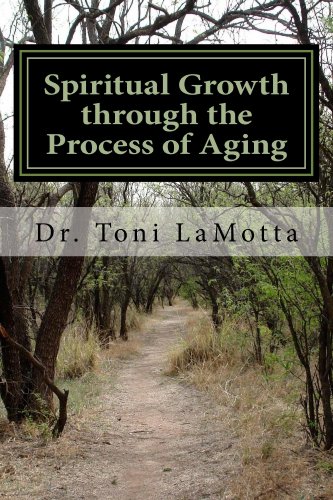
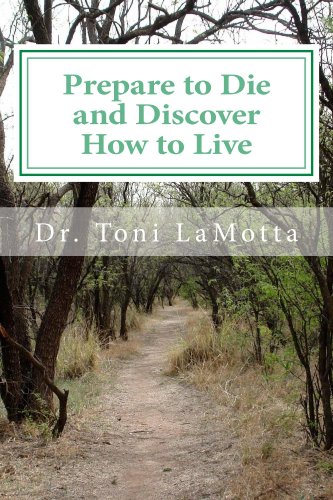
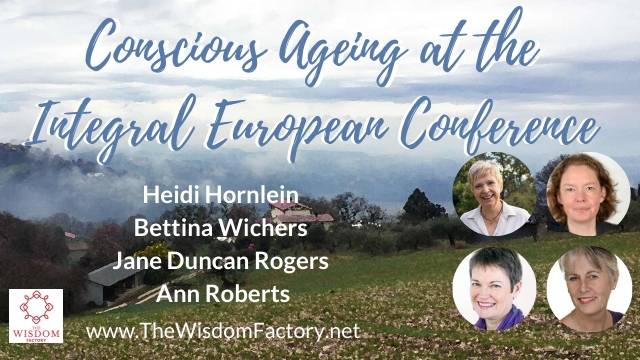
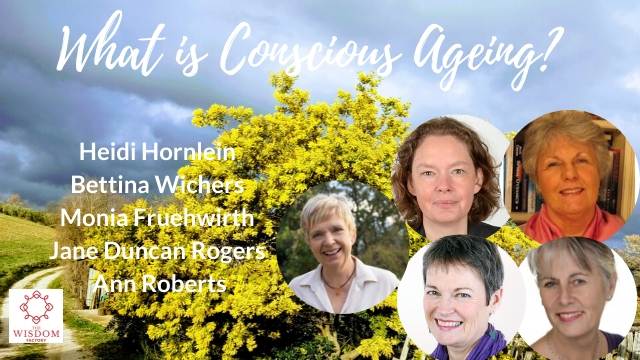
Leave A Comment